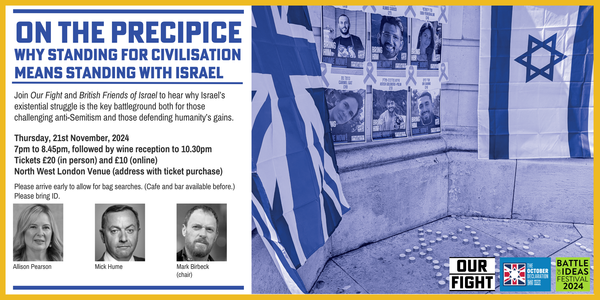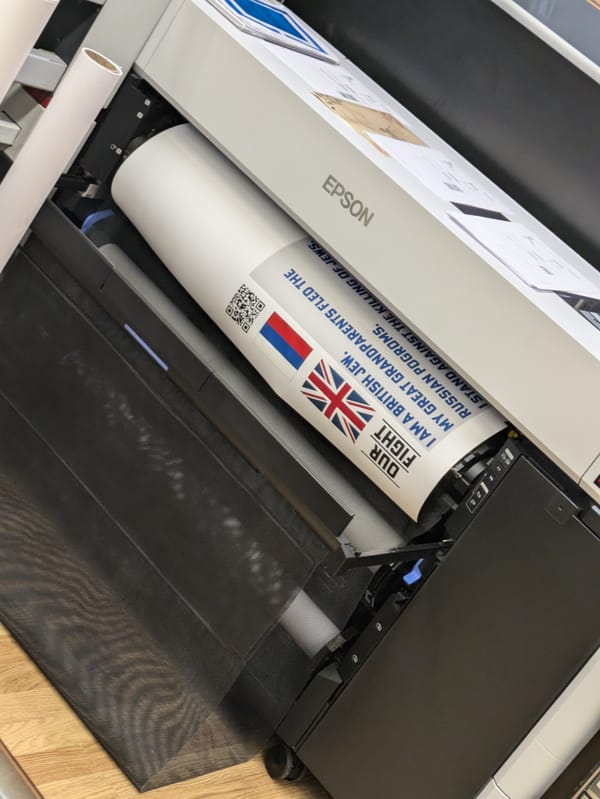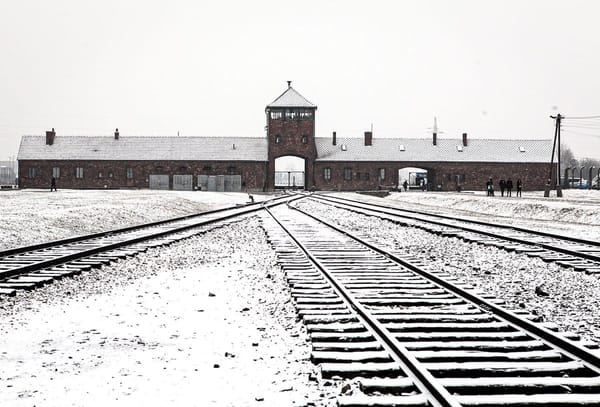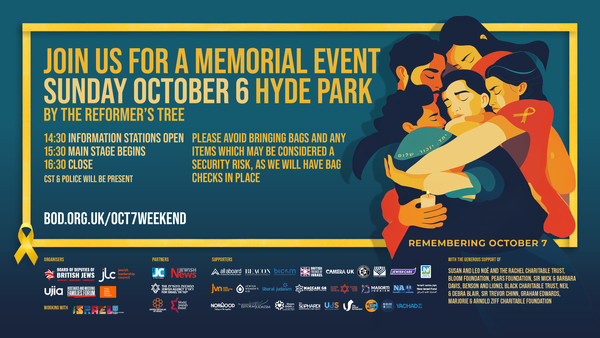Discussion: UNRWA and the Palestinian Refugees: A History within History
Susannah D, an ex-UNICEF, EU and WHO consultant, and now a UK civil servant, introduced an important article from 2010, which looked at UNRWA's role in perpetuating the plight of Palestinian refugees.

The following is an introduction given by Susannah D., for a discussion amongst London supporters of the Our Fight campaign, of the paper, UNRWA and the Palestinian Refugees: A History within History.

The United Nations (UN) has two refugee organisations:
- UN Relief and Works Agency for Palestine Refugees in the Near East (UNRWA), which is for Palestinian refugees of the 1948 and 1967 wars.
- UN High Commission for Refugees (UNHCR), which is for all other refugees in the world.
The paper was written in 2010, just before UNRWA adopted a more stridently Hamas-supporting outlook. It is copyright UNHCR.
UNRWA was set up in May 1950. It was intended to be a temporary organisation, but its mandate has been renewed every three years since then. Its current mandate ends in 2026.
Increased Politicisation
There has been little public debate about the role of UNRWA, until very recently. UNRWA is now coming to wider attention–although perhaps not yet to BBC audiences!
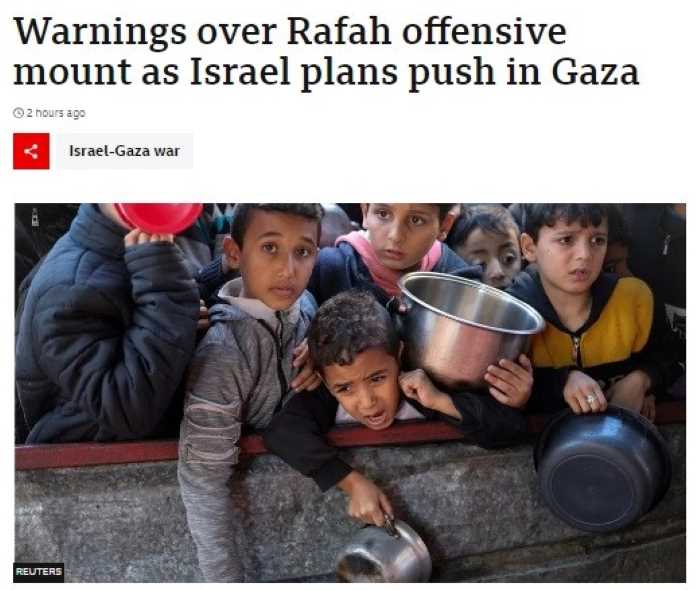
According to Google Trends, Google searches for 'UNRWA Hamas' have shot up in recent weeks.
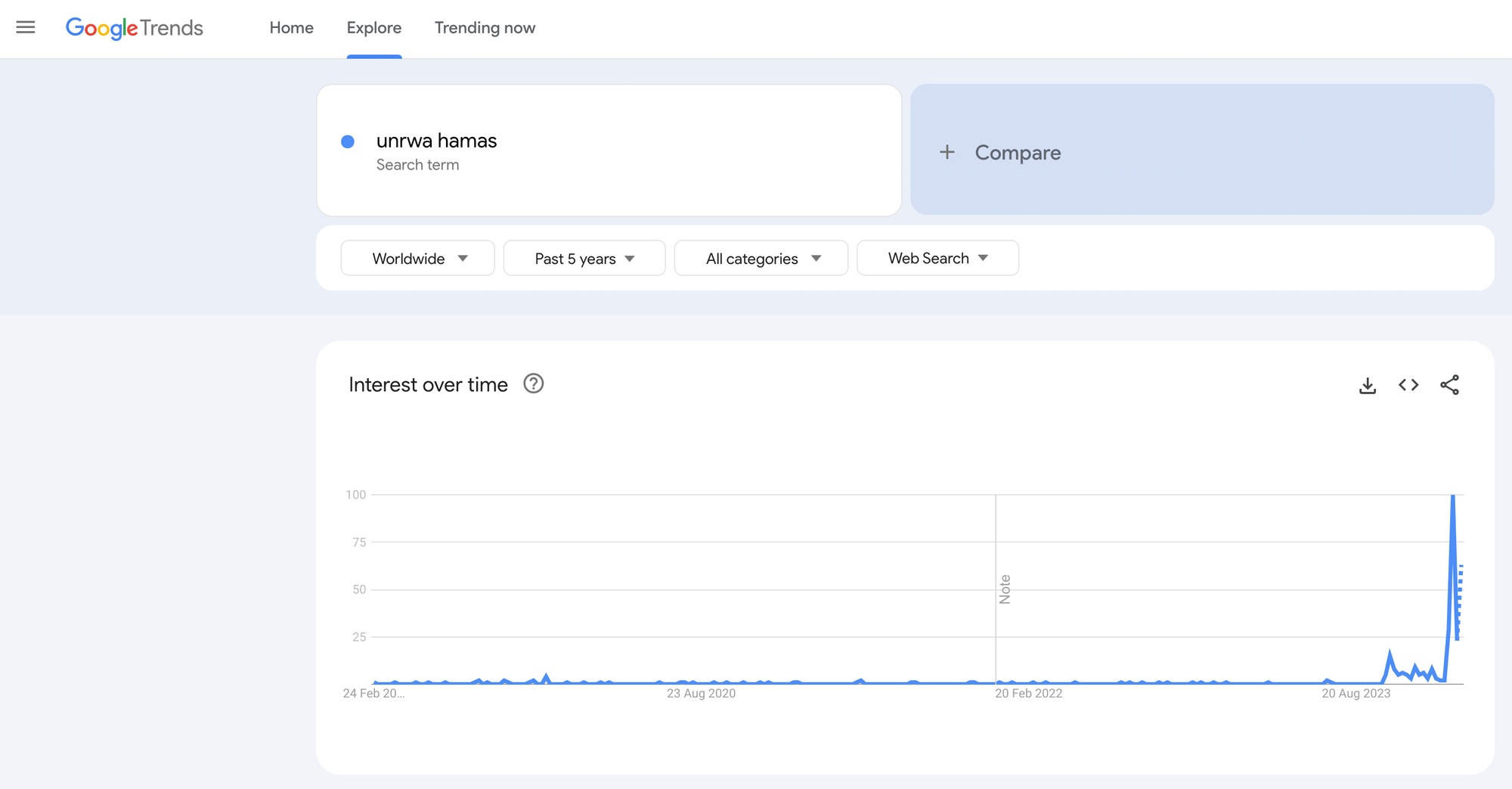
For over 10 years UN Watch has been reporting on how UNRWA has become increasingly politicised, influenced by terrorist groups and inciting anti-Semitism.

In 2015, a UN inquiry found weapons had been placed inside an UNRWA school in the Hamas-run Gaza Strip, and that it was likely a Palestinian armed group could have used the school premises to launch attacks.

The 2021 IMPACT-se review of UNRWA school teaching materials found many examples incited violence, demonised Israel, endorsed martyrdom and spread anti-Semitic conspiracies.
The March 2023 UN Watch report showed 133 UNRWA educators and staff were found to promote hate and violence on social media. And 82 UNRWA teachers and other staff affiliated with over 30 UNRWA schools, were involved in creating and distributing anti-Semitic content to students. UNRWA claims it had 'mistakenly' produced and distributed these materials.

In October 2023, UNRWA’s X post about medical supplies and fuel being stolen from UNRWA by Hamas, was hurriedly deleted and replaced with a 'nothing to see here' message.
A Telegram group for UNRWA teachers had hundreds of messages celebrating the 7/10 massacres.
Israel says that during 7/10, UNRWA staff:
- kidnapped Israelis;
- transported ammunition and the bodies of dead soldiers;
- took part in the assault on a Kibbutz.
Israel is linking 1,200 UNRWA staff to Hamas; Al Jazeera (now kicked out of Israel) calls these 'bad olives'.

In February 2024 the IDF showed the electricity cables that led down from UNRWA Gaza HQ to Hamas’s data centres that held eight servers. The massive electricity bill surely would have raised eyebrows; someone within UNRWA must have known about the tunnels, and the comings and goings.
UNRWA Funding
These allegations have led the US, UK and others to pause funding. This is not the first time this has happened; in 2018, the Trump administration temporarily cut off contributions to UNRWA, calling it an 'irredeemably flawed operation'.
Although the US has just withheld $300,000, they'd already given $121 million since October 1st, 2023, whilst Spain has even increased funding.
Although there are understandable concerns that defunding UNRWA could lead to a humanitarian disaster, there are many other aid agencies in the area that could help, and which are not in the pockets of Hamas, such as the World Food Programme.
UNRWA–An Obstacle to Peace?
UNRWA has no interest in finding a solution for Palestinian refugees. The paper says UNRWA:
does not have a mandate as such to seek durable solutions for Palestine refugees.
'Reintegration' was dropped from its mandate by 1960.
So did UNRWA help create the current situation? And does UNRWA perpetuate and sustain it? More specifically, has UNRWA helped to create a Palestinian national identity based on victimhood?
The paper shows how UNRWA is a quasi-state. They employ 19,877 education staff in 706 schools, teaching 543,075 pupils.
The paper shows how UNRWA has created instability in host countries like Jordan. In Lebanon UNRWA camps are used as paramilitary bases, and last year violence broke out in refugee camps in southern Lebanon, between rival factions of Islamists and Fatah. 11 were killed.
As long as UNRWA relieves the Gazan and West Bank governments of their responsibilities for Palestinians, Hamas can spend their aid money on tunnels and weapons.
The Forever Refugees
The most shocking discussion in the paper is around UNRWA's mandate; it exists to serve a growing number of refugees–the forever refugees, people in limbo.
UNRWA has ensured that the refugee issue only grows larger. The refugee status assigned to the 750,000 Palestinians who lost their homes and livelihoods in 1948 is automatically transferred to their descendants–including adopted children and those born today. Which means that unlike any other refugee crisis, the number of 'registered refugees' has grown, and now stands at 5.9 million.
80% of registered Palestinian refugees are either citizens of another country or they live where they were born; in other words, they aren't really refugees by any other definition. No other peoples in the world are considered refugees when they are citizens of another territory.
Jordan has the largest Palestinian population–2.3 million registered Palestinian refugees. UNRWA runs 169 schools with 119,000 pupils.
Palestinians have rights in Jordan but also get a form of welfare that many poor Jordanians–not of Palestinian descent–do not get. This has fuelled instability and anti-Palestinian feelings.
Even though Palestinians in Jordan are citizens, they are still considered refugees by UNRWA, with the 'right to return'.
Palestinians are not full citizens in Syria and Lebanon, and UNRWA does nothing to fight for their right to citizenship. Instead it collaborates in their discrimination and the perpetuation of their refugee status. Lebanon has limited the integration of Palestinian refugees into their society to put pressure on Israel to address the situation.
Have Syria and Lebanon encouraged this refugee status to bolster a Palestinian national identity, while denying Palestinians equal rights? Could this be to keep the conflict alive?
Having Palestinians in camps means they get international attention and can be used as bargaining chips.
In Lebanon, Palestinian refugees are not allowed to own property and are denied the right to work in the main professions. Therefore, they must heavily rely on basic UNRWA services such as healthcare and education.
Other refugees around the world have been encouraged to settle and assimilate. Once a refugee becomes a citizen, their children are no longer classed as refugees. In Israel alone, 586,070 Jewish refugees were integrated from Arab countries from 1948 to 1972. They don’t call themselves refugees.
So why are the Palestinians not treated like other refugees? Why are the descendants of the displaced classed as refugees too?
The Handmaiden of Paramilitaries
As UNRWA is staffed almost entirely by Palestinian registered refugees, it reflects their dominant outlook. When this paper was written, UNRWA was dominated by pan-Arabism and Palestinian nationalism, and even a bit of secularism–consequently the curriculum was broadly like that of secular schools.
UNRWA has now been captured by an Islamist and anti-Semitic project, and it now seems to be the civilian branch of Hamas.
UN Anti-Israel Bias
Israel is often the subject of disproportionate and one-sided attention from United Nations. Anti-Semitism often goes unchallenged.

Every session of the UN Human Rights Council features a standing agenda item targeting Israel; not Russia or Iran or North Korea.
It took UN Women 57 days to condemn the 7/10 massacres.
Is it time to re-examine UNRWA and the UN as a whole?



